Changes in the process of enrollment of students, enough to cope with segregation?
- The enrollment process of students has been modified by the Basque Government with the aim of “distributing diversity and vulnerability in a balanced way”. However, agents have criticised the fact that it only affects the registration of 2-year-old boys and girls, that the extension of the area of influence for the choice of the centre raises problems and that no single registration office has been established.

Changes will affect the registration of 2-year-old boys and girls – not pupils already in school – as well as those who register late after the school year: all schools must reserve a number of places for vulnerable pupils. In the following years, the changes would progressively extend to the remaining ages. LAB and STEILAS criticize that it only affects 2-year-olds. “It will take 16 years to affect all stages and levels. We believe that the reservation of places should also be made at the beginning of the different stages of teaching, because it is not certain that a student who enlists in the course of 2 years will complete the journey in the same center, even more when the compulsory schooling is not until the age of 6, so no measures are proposed to deal with the imbalances that occur in the following courses”, says LAB.
Reservation of places should also be made at the beginning of the different stages of education
In the scale (score for the choice of center), the new process assumes a change: if the selected center is the closest center to the family home, it will have 7 points and if another center of the area of influence is chosen, 5 points. Until now, the fact that the residence is in the area of influence gave 6 points. For the LAB trade union, the additional point given to strengthen the next one is not enough, and also calls for the points given to the members of the cooperative to be removed.
STEILAS is pleased to see that the proximity of the centre is more visible, but it is not clear that above this proximity there is always a public school of Model D to which it is requested. In fact, there are cases of families who have not found model D when choosing a nearby center. In the sphere of influence of all families, it would be necessary to guarantee not only a sufficient public offer of model D, but also a secular offer, adds LAB.
Both the trade unions cited and the Basque Public School’s Pride Platform have warned that among the changes made by the Government the areas of influence have been rearranged, that the area they occupy is now larger: “It encourages competition between schools and endangers the most vulnerable centers, most of them public,” the platform says. In addition, the expansion of the area of influence may mean that some vulnerable students have to move to another neighborhood or even another village, say the agents, or that in some small towns there is no direct public offer, as children will move to some nearby village, adds the platform.
"There is nowhere to say that a public school of Model D should always be offered to those who request it, above the proximity of the centre"
Other criticisms have also been made of the registration process. Thus, for example, an ancestral claim, at local and local level, of the establishment of a single registration office, “establishing the appropriate control measures”, that the variables that will define the vulnerable student are not known, and that with the Basque Public School there is an oversupply of concerted places, “which will harm and directly reduce the public network, since the creation of new public places” has been agreed upon.
However, despite the changes in the registration process, STEILAS and Harro stress that the core is another and that while the current dual model (public/concerted) is maintained, segregation will not be adequately addressed. “To put an end to universal consultation and to open a real way of publishing”, added the platform that the path is not “to distribute to students of one kind or another” but “to build a balanced and strong network of public schools”.
The time has come for us to enrol in schools in the Basque Country for the 2025-26 academic year, and in many homes the youngest of the household will take a new step soon, in September, which is schooling. Proud of the Basque Public School The members of Topagune are firmly... [+]
Since the adoption of the new Education Law for Álava, Bizkaia and Gipuzkoa, we are hearing/reading again and again that education will be free from now on. We have listened to different actors, including the Department of Education, and in the interviews we offer to the media,... [+]
There are many ways to gain power; not all are beautiful. There are those who want to divide the power and the responsibility that it entails with it, who seek authority. Others have a lot of respect for him and the fact that each step is so measured makes them unable to make a... [+]
On February 3rd, the time has begun to pre-enroll our children and young people in schools, and as every year we would like to remind you why we do not think it is a good idea to enroll them in religion. Last year we finished the article saying that “many of you will be... [+]
From the Association of Parents of the Instituto Arratia Small Tram we want to encourage reflection on the use of screens in the learning community.
Lately there is a lot of concern about the impact of screens on children and adolescents. This responsibility extends from... [+]
There are concepts that appear everywhere during certain periods, which also become mantras. They appear to us in a positive and necessary way, without too much debate and without thinking about them. It seems to me that one of these mantras is internationalization, which has... [+]









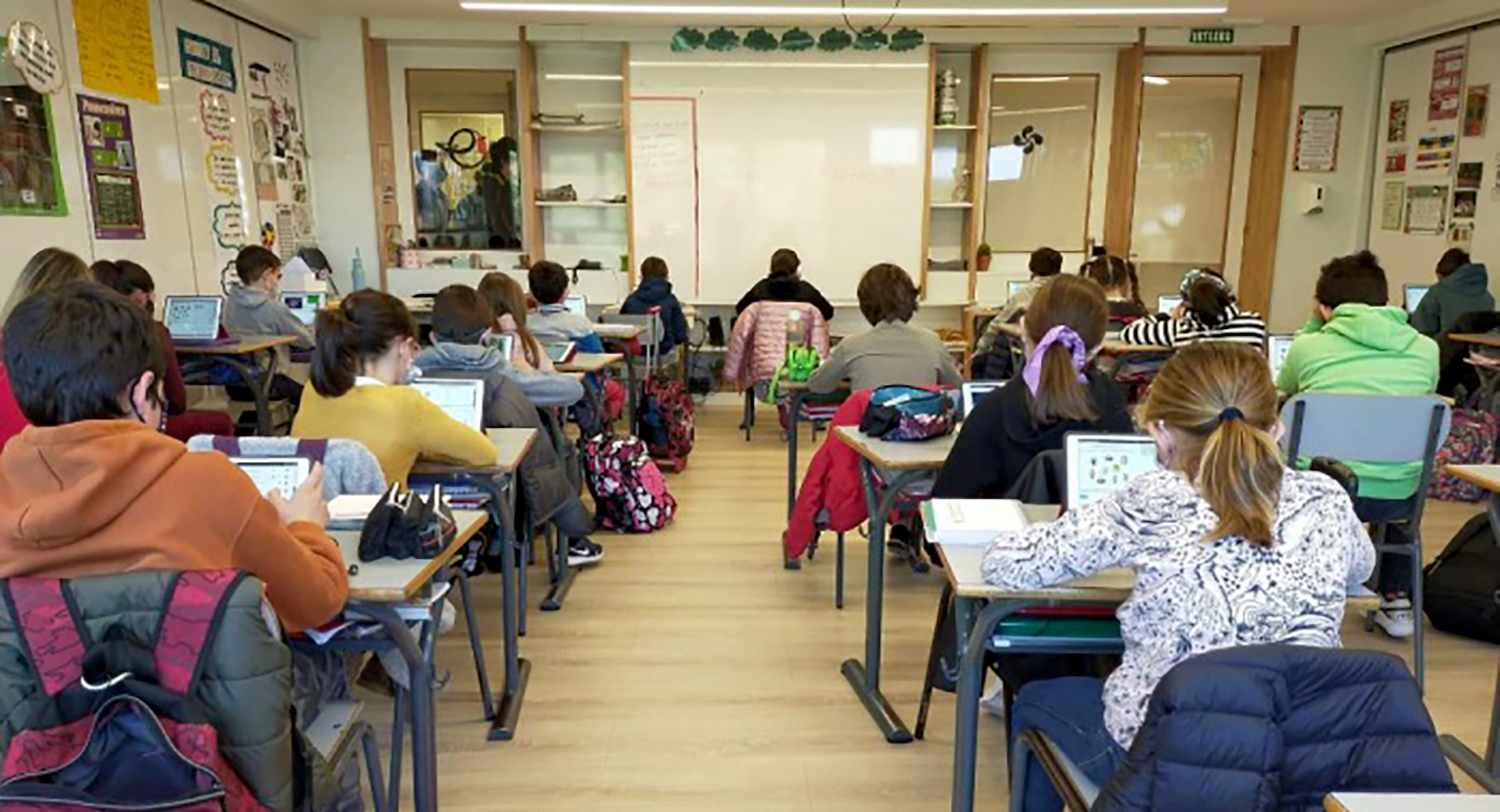

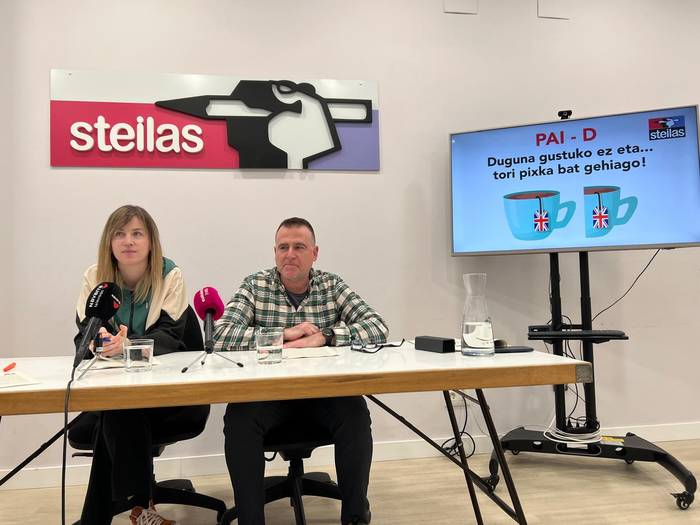
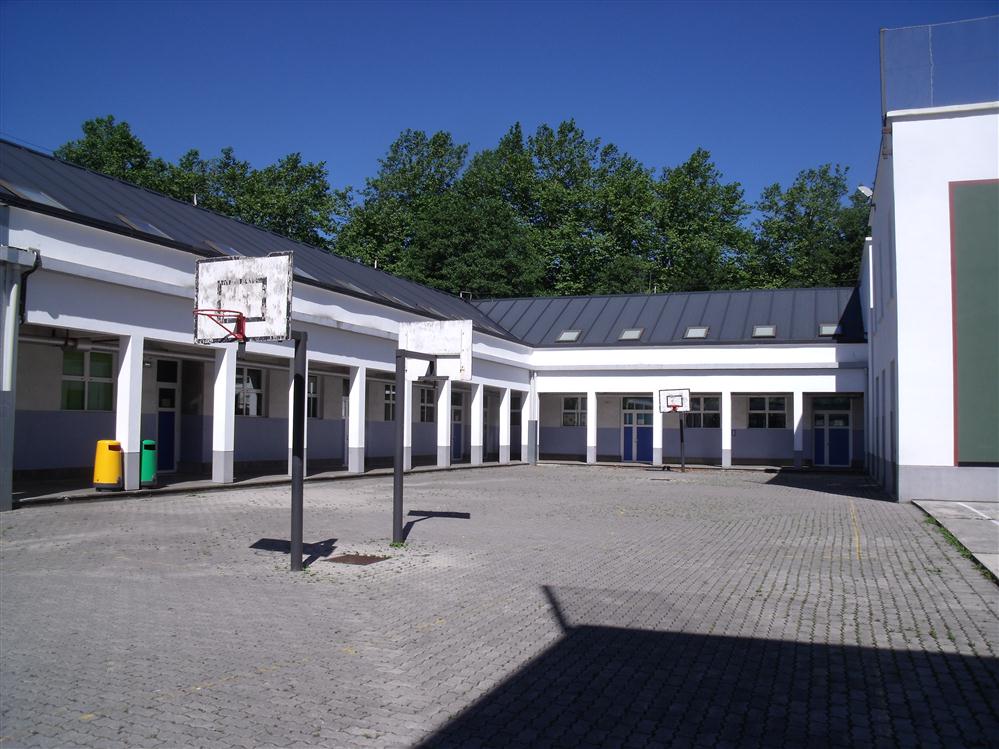
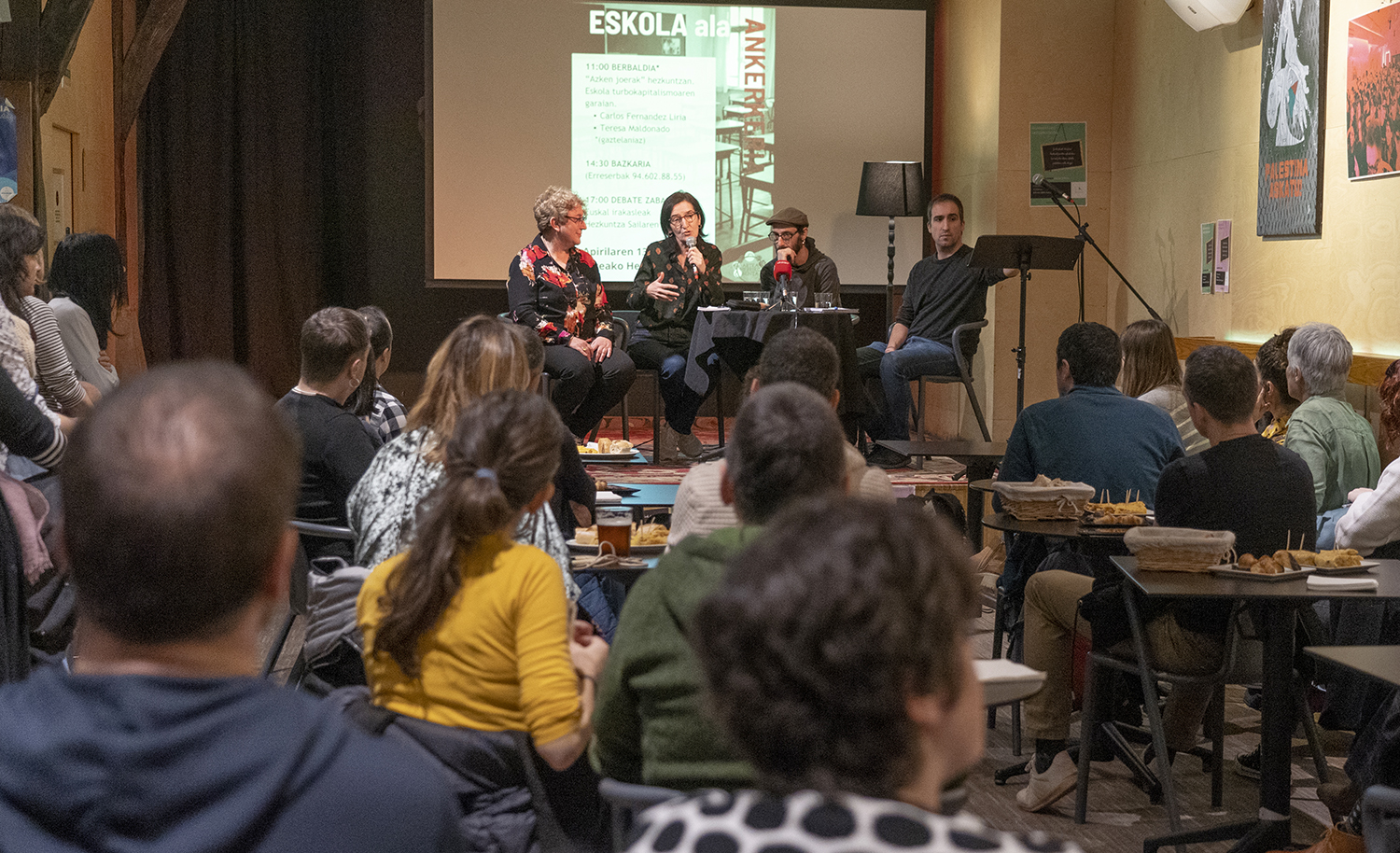
_2.jpg)
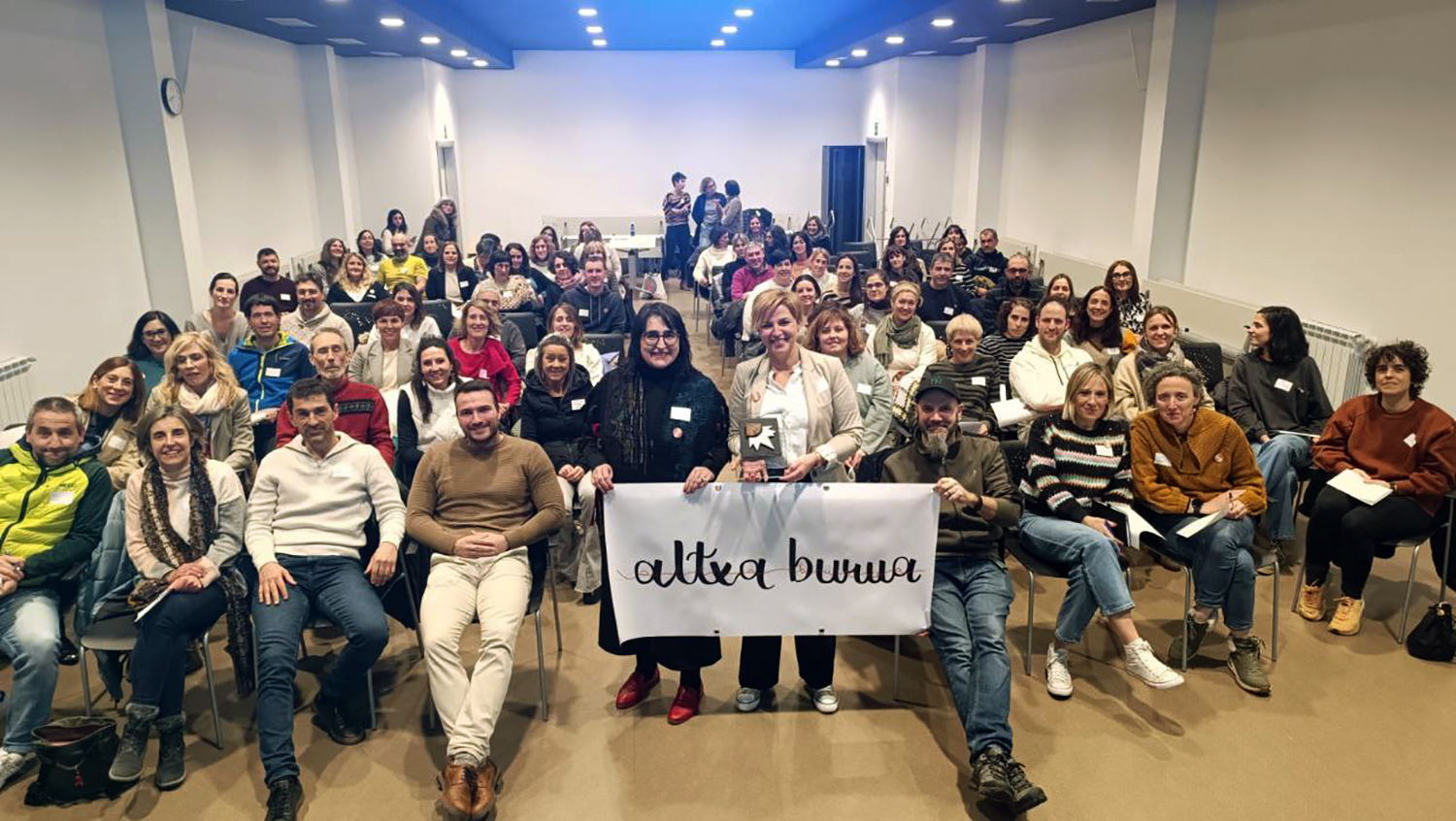
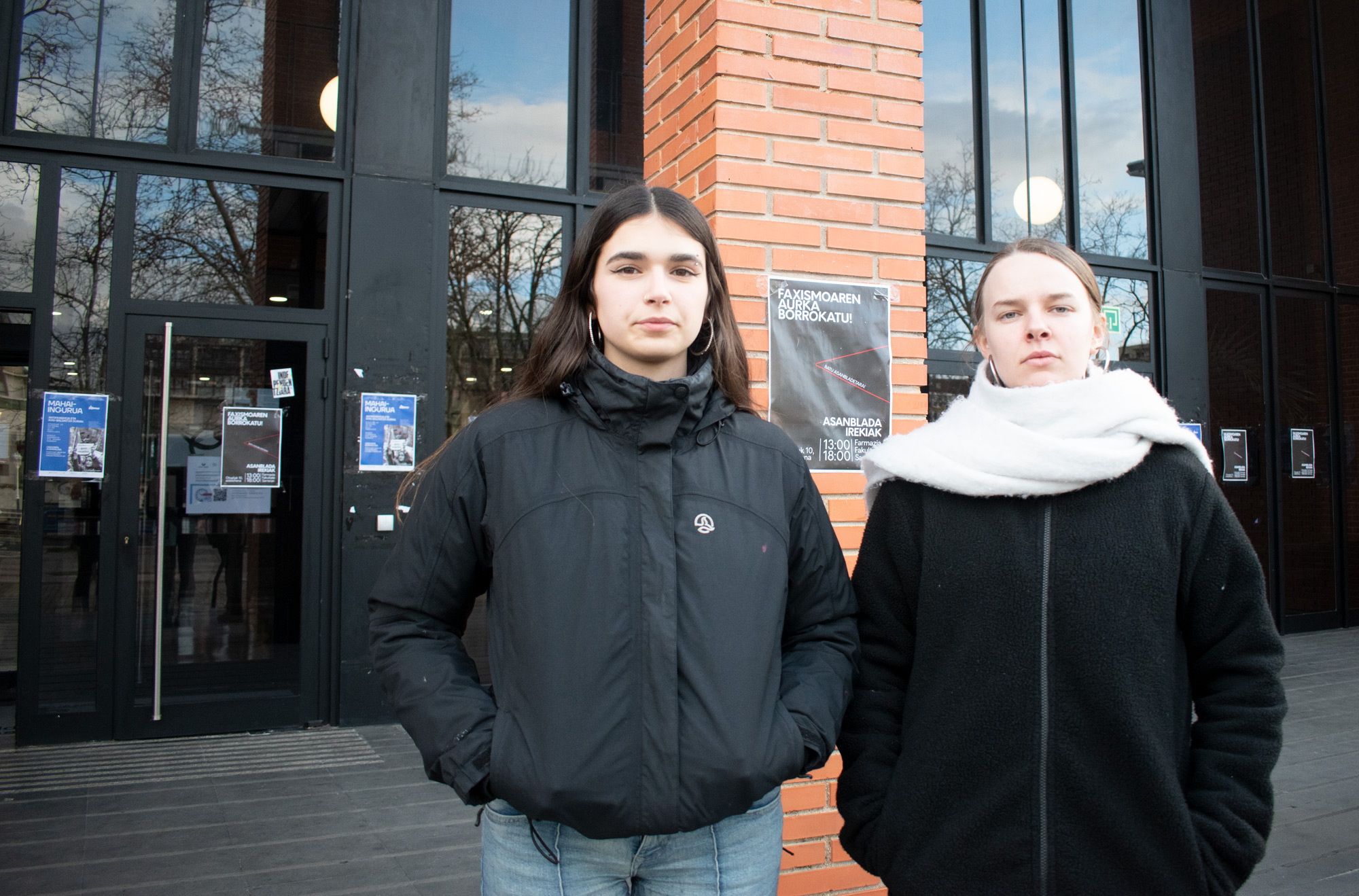
_2.jpg)
